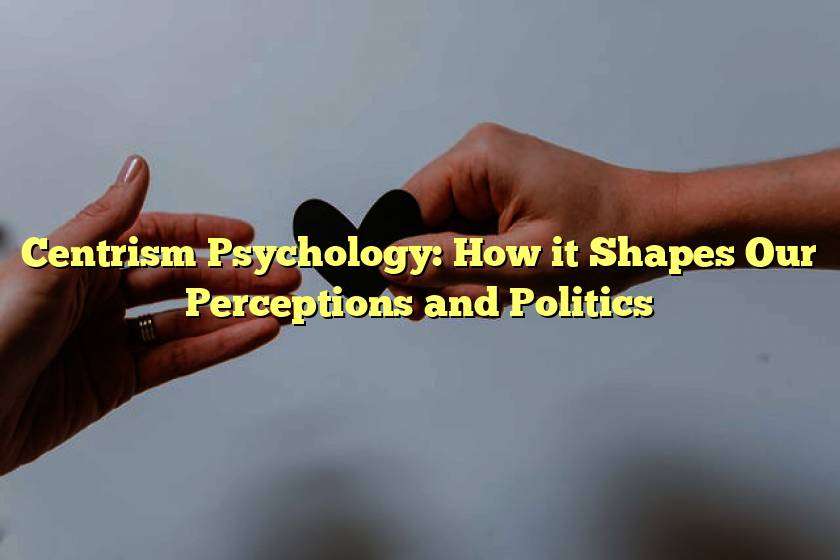Centrism psychology is a broad term that refers to the way we form beliefs and attitudes through a bias towards the middle ground. It is a complex area of research that encompasses many fields, including political science, psychology, and sociology. In this article, we will explore the principles of centrism psychology, how it shapes our perceptions, and how it affects our politics.
What is Centrism Psychology?
Centrism psychology is the tendency to believe in ideas that are considered moderate, moderate-left, or moderate-right. It is the idea that the best approach to any issue is one that falls within the average of what people believe or think. It can also be described as a way of thinking that favors compromise and agreement between two opposing viewpoints.
This bias towards centrist thinking is deeply ingrained in our society. It affects the way we consume and create information, often leading us to believe that the truth must lie somewhere in the middle ground. However, this can sometimes result in a lack of understanding of the nuances of policies or issues.
How Does Centrism Psychology Shape Our Perceptions?
Centrism psychology shapes our perceptions in several ways. Firstly, it reinforces the idea that there are only two sides to any issue – left and right. This binary way of thinking can lead us to believe that there is no other alternative or that there is an equal balance between the two sides. This often results in a lack of critical thinking and an inability to recognize the truth or the validity of alternative opinions.
Another way that centrism psychology shapes our perceptions is through the media. News outlets often present both left and right opinions, which can lead us to believe that both sides have equal weight or that there is no definitive answer to an issue. This can lead to a lack of trust and confidence in media outlets.
How Does Centrism Psychology Affect Our Politics?
Centrism psychology can affect politics in various ways. Firstly, it can lead to a lack of strong political leaders or movements. Centrist politicians often struggle to unite people behind a common cause, as they try to appeal to a wide range of opinions and beliefs.
Furthermore, centrism psychology can lead to political polarization. As we believe that there are only two sides to any issue, we may struggle to engage with and understand alternative viewpoints. This can result in an inability to find common ground or to come to a compromise.
Conclusion
Centrism psychology is an important concept in understanding how we form beliefs and attitudes. It shapes our perceptions and can affect our politics. It is important to recognize the influence of this bias and to engage in critical thinking when faced with polarizing issues. By recognizing the nuances of different viewpoints, we can find common ground and work towards compromise and understanding.


